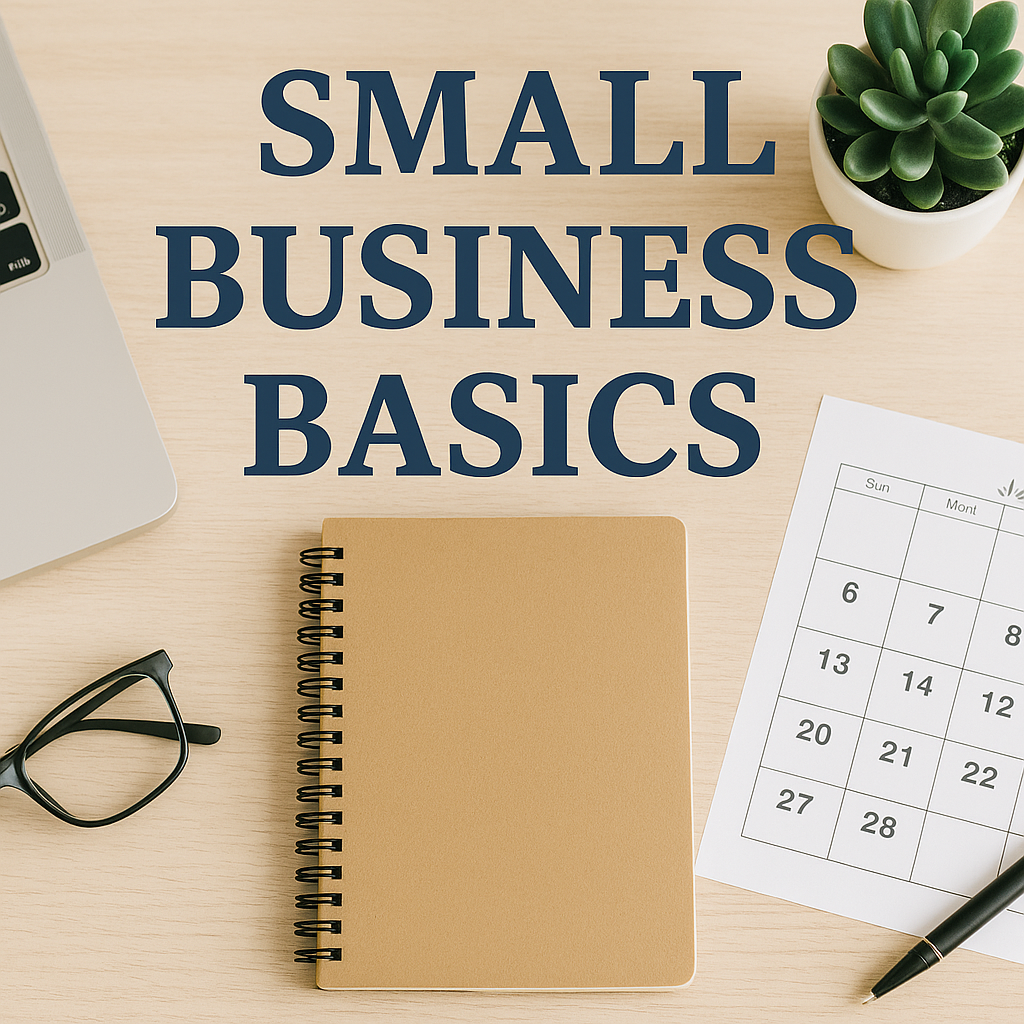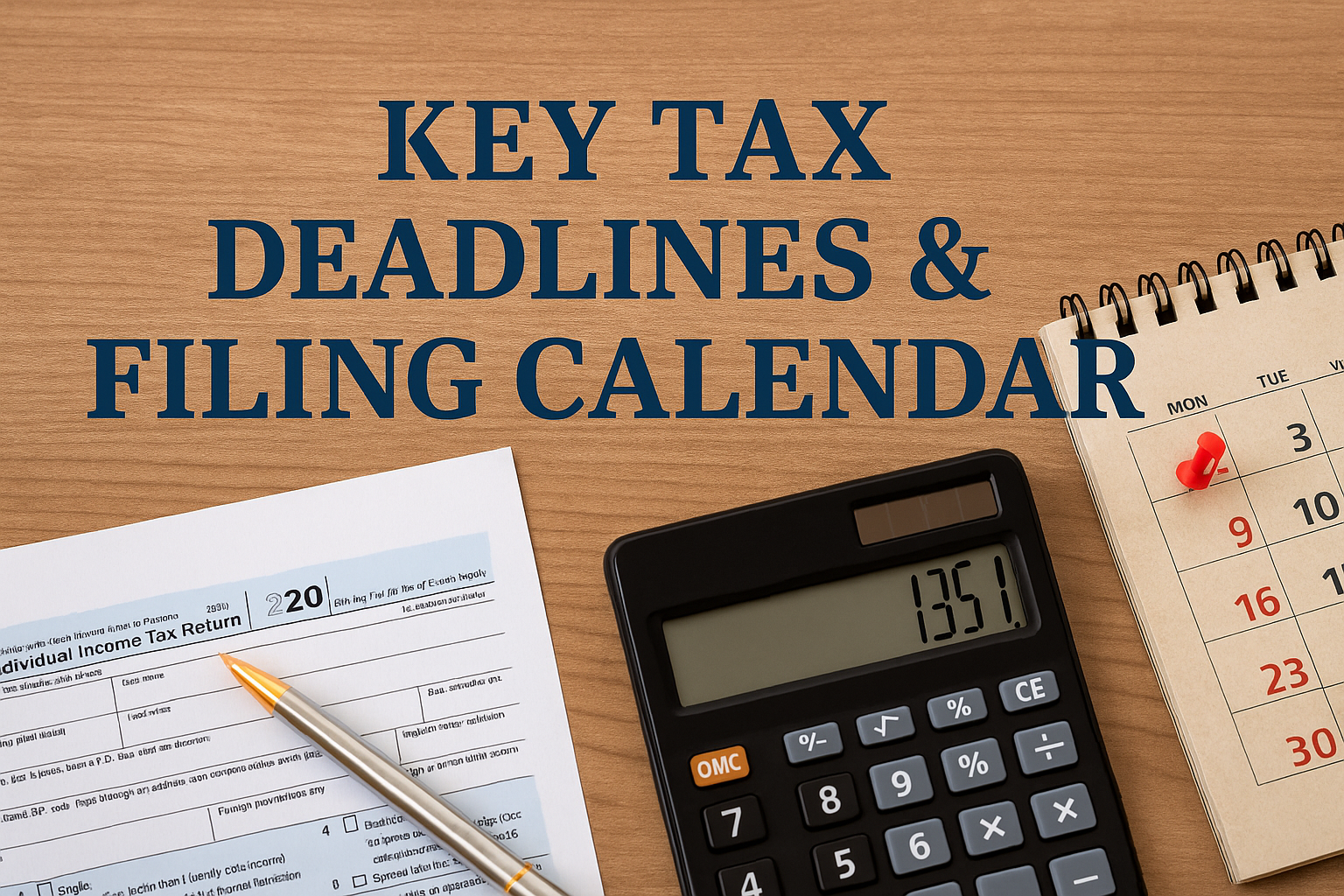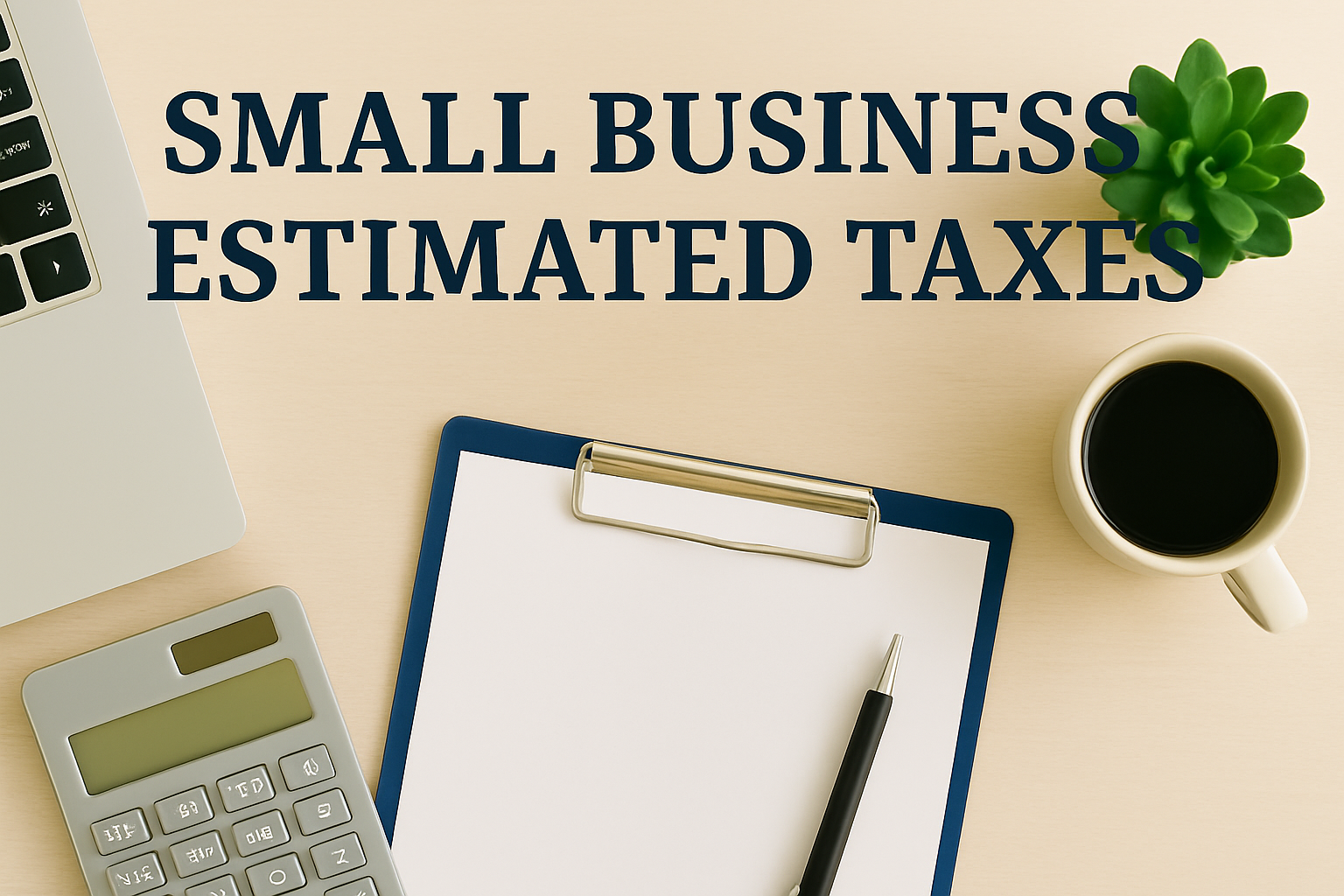Small Business Tax Guide
-

Small Business Basics
Starting a small business brings new tax responsibilities at the federal, state, and local levels. Knowing how taxes apply to your business structure can help you make informed decisions and avoid costly mistakes.
This guide introduces the core tax obligations small businesses face, explains how income is taxed based on structure, and highlights key considerations to keep your business compliant and financially healthy.
-

Small Business Tax Deductions
Knowing which expenses you can deduct is a powerful way to lower your taxable income and improve your bottom line. From home office use to mileage, software, and startup costs, small business owners have many opportunities to claim legitimate deductions.
This guide highlights key deductions, industry-specific examples, and tips for proper documentation—helping you stay compliant while reducing your tax bill and avoiding red flags that could trigger an IRS audit.
-

Key Tax Dates and Deadlines
Missing a tax deadline can lead to penalties and interest, making it essential for small businesses to stay organized throughout the year. From quarterly estimated taxes to annual returns and year-end reporting like W-2s and 1099s, each due date plays a critical role in staying compliant.
This guide highlights the most important federal filing deadlines and offers tools to help you stay on track—so you can avoid costly mistakes and keep your business running smoothly.
-

Small Business Estimated Taxes
Estimated taxes can be confusing, but they’re a critical part of staying compliant if you’re self-employed or run a small business. If you expect to owe at least $1,000 in taxes for the year, and don’t have enough withheld, you likely need to make quarterly payments.
This guide explains who needs to pay, how to calculate your payments, and how to avoid penalties using IRS safe harbor rules and helpful tools—so you can stay on top of your obligations with confidence.
-

Small Business Hiring: Employees vs. Contractors
Classifying workers correctly as employees or independent contractors is vital for avoiding tax issues and legal penalties. The IRS looks at how much control you have over a worker’s tasks, finances, and relationship with your business.
This guide explains the key differences, outlines your tax responsibilities for each worker type, and offers best practices to stay compliant—helping you avoid costly mistakes and keep your business on solid ground.
